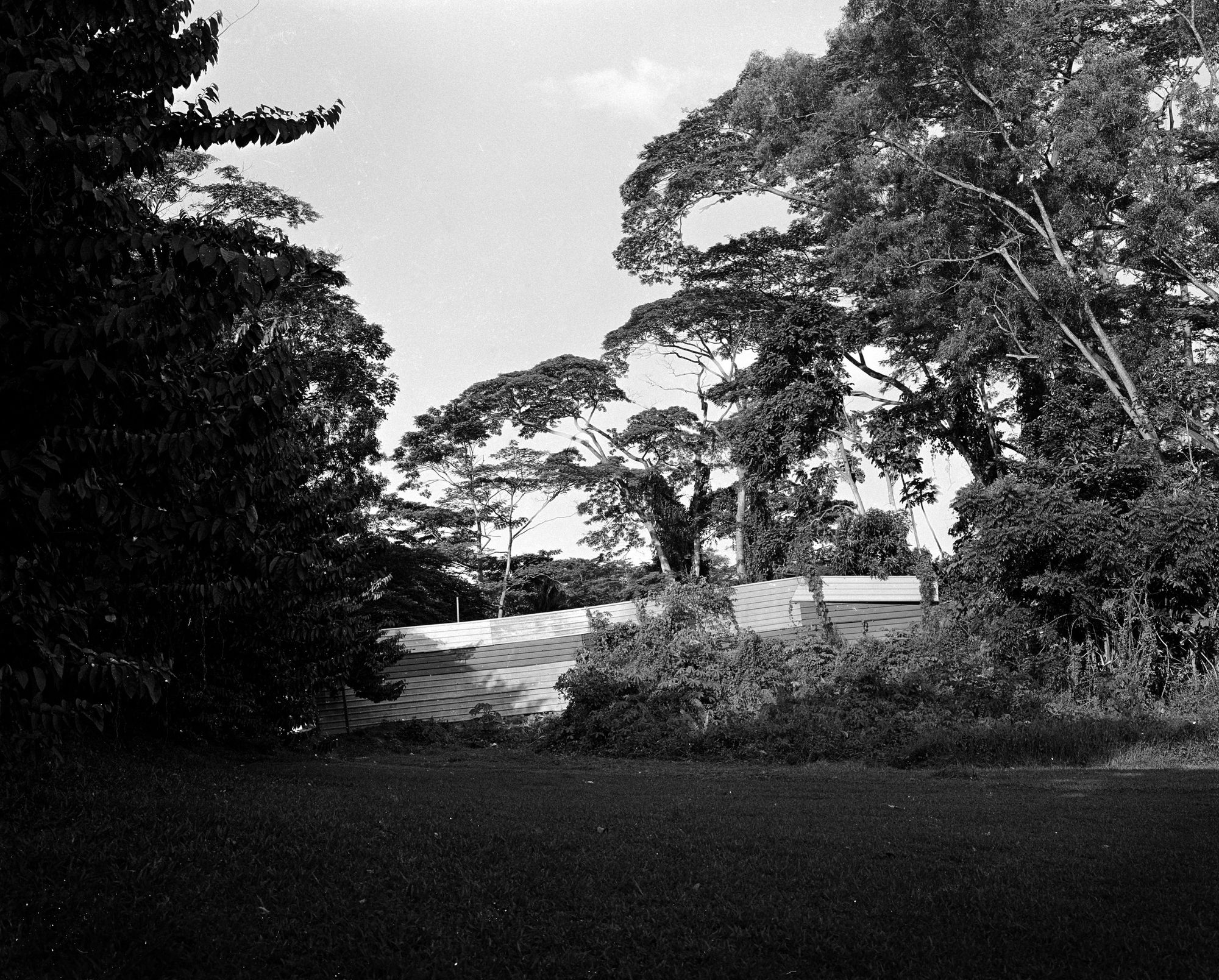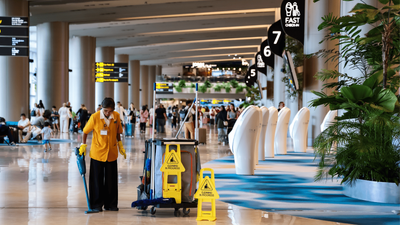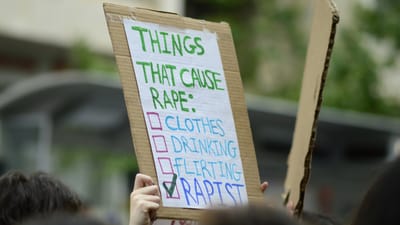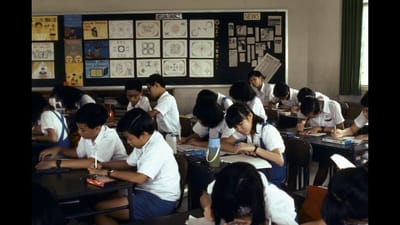In June 2022, Lawrence Wong, deputy prime minister, announced the Forward Singapore initiative to “review and refresh our social compact, and chart a roadmap for the next decade and beyond.” Wong, freshly anointed as the ruling People’s Action Party’s (PAP) next leader (and thus likely future prime minister), explained that a social compact was “a shared understanding of how all of us in society relate to one another,” and “the respective roles and responsibilities of different groups.” Such engagement exercises aren’t new. Three years ago, Heng Swee Keat, also deputy prime minister, launched the Singapore Together consultation exercise for Singaporeans to “partner with the government, and with one another, to own, shape and act on our shared future together.”
It may be unsurprising that many Singaporeans have approached this latest consultation exercise with scepticism. Heng introduced Singapore Together when it was assumed that he’d be the next prime minister. Then, Wong presented Forward Singapore once he’d replaced Heng as heir apparent. One political pundit has warned that Forward Singapore could be viewed as a mere paper exercise that’s “more form than substance”. One reason: the review of Singapore’s social compact seems to leave untouched the roles and responsibilities of the state itself—and more specifically, the PAP—and its relationship with citizens and civil society. None of the consultation’s six pillars—the economy (“Empower”), education (“Equip”), health (“Care”), housing (“Build”), environmental sustainability (“Steward”) and national identity (“Unite”)—touch on the proper place that the state should occupy in the coming decades. More cynical Singaporeans might question the state’s apparent interest in consulting its citizens considering the numerous criminal prosecutions of high-profile activists, including Subhas Nair, Jolovan Wham and Terry Xu, under the various laws that circumscribe the freedom of speech and assembly in Singapore.
For some, it may seem unnecessary or even silly to examine the state’s role in society given how the Singapore government has outperformed many others, particularly during and in the aftermath of the Covid-19 pandemic. To others, it might be inconceivable to imagine how the government could operate differently since paternalism—or even authoritarianism—is accepted, and also celebrated, as partly responsible for Singapore’s development against the odds. (The counter-argument is that single-party dominance has often been mistaken and conflated for the more important factor of good governance.) Nevertheless, if we are to take Wong’s call to rethink Singapore’s social compact seriously, then we must also interrogate whether Singapore should continue to be governed by a heavy-handed, nanny state, and the potential risks of maintaining the status quo. After all, as the cliché goes, we are entering a new chapter of human history characterised by VUCA (volatility, uncertainty, complexity and ambiguity).
While many maintain that Singapore’s paternalism may have been advantageous in our rapid development over the past 50 years, it’s questionable whether the ruling party—and the country as a whole—can survive the coming years with more of the same. As the PAP’s mounting crises and scandals of late demonstrate, the system that undergirds this social compact might no longer inspire the same confidence that many have taken for granted. This must also be set against longer-term political evolutions, including the unprecedented number of opposition politicians in Parliament, increasing political engagement among young people, and the looming threat of foreign interference. Altogether, these developments demand that the social compact, as it relates to the relationship between the state and the public, be scrutinised to determine whether it remains fit for purpose.
The juxtaposition of Wong’s apparent interest in “listening to and partnering with Singaporeans” and the reality of Wham and others being arrested for their social justice activism has revealed the state’s strategy of control, and its management of dissent and discontentment. Put simply, some forms of civic participation are endorsed while others are branded as “activism”, which may invite criminal investigation or accusations of disloyalty. Adapting the metaphor of “governing as gardening” that academics Kamaludeen Mohamed Nasir and Bryan Turner developed, deliberate state action since Singapore’s independence has created a “gardened” civil society—disempowered, manicured and controlled—which has gradually replaced the once-thriving “forest” of people power—organic, independent, and unwieldy.
Yet, civic participation can’t be limited to what’s palatable to the state. An oft-used anecdote to illustrate this tension is to first imagine drowning babies floating down a river. One could jump in to rescue them, and organise the community to join in the rescue. But as the flow of babies continues, one and some others decide to head upstream to stop whomever is throwing the babies into the river. To address social problems, we need both “downstream” participation (e.g. direct service provision), and “upstream” advocacy that tackles broader structural and policy causes.
In Singapore, “downstream” civic participation—such as beach clean-ups, food kitchens for the poor or migrant workers, or volunteering at an old folks’ home—is welcomed, encouraged and even mandated in schools. In contrast, “upstream” advocacy may inadvertently fall foul of political “out-of-bound” (OB) markers, and result in being blacklisted from public sector and academic jobs, defamation suits and criminal investigations. The existence of these OB markers is proof of the outsized role of the state and its ability to dictate how citizens participate in society.
Put another way, Singapore’s social compact is a fait accompli. Garry Rodan, scholar of South-east Asian political economy, has coined this “participation without democracy”, when political contestation that is part-and-parcel of a functioning democracy—what was normal in early independence Singapore—is sidelined and replaced by “state-sponsored avenues of political participation”, which Rodan said afforded prevailing political and bureaucratic elites “greater control over who participates, on what, and how.” This calibration of civic and political participation, he added, is ultimately aimed at regime maintenance, to ensure the PAP’s continued victory at the ballot box by weakening potential pockets of political opposition or dissent.
Seen in this light, the Forward Singapore exercise, like the many before it, emerged only as the latest example of this strategy, which limits where, when and how our voices as citizens may be raised and heard. Within this restricted political space, undesirable modes of participation, as well as the individuals who potentially threaten the state’s legitimacy and power, are delegitimised and excluded.
A striking example of how consultative channels may be wielded to arbitrate the space of legitimate political discourse can be gleaned from the lead up to the legislating of the Protection from Online Falsehoods and Manipulation Act (POFMA). Even though concerns were raised to the Select Committee formed to consider the draft legislation, historian Thum Ping Tjin’s submission on the outsized role that the state plays in purveying “fake news” for party-political gain—which ostensibly fell outside the OB markers—became a six-hour-long inquisition on his research and credibility. K Shanmugam, home affairs and law minister, argued that “keeping quiet” about Thum’s “serious allegations” was “not an option”. Yet, in making an example of Thum, broader civil society and academic concerns about POFMA—in relation to its potential overreach and alternative non-legislative approaches to addressing the problem—were largely overlooked.
Singapore’s contemporary social compact—where the state gets to decide what can be said and done—is not a natural state of affairs. The work of pioneering Singaporean activists ranged from down to upstream. For instance, Tan Kah Kee, businessman and philanthropist, and early PAP politicians were known not only for their volunteer work but also their social activism. This included the use of (supposedly) contentious tactics such as petitions, broad-based community organising, political conscientisation and, in the case of the early PAP, strikes and protests. Since independence, however, such outgrowths of individuals and communities engaging beyond state-sanctioned spaces have ironically been absent in Singapore.
Whatever elements of the organic and unwieldy forest that couldn’t be co-opted have ended up being felled. Singaporean talent, so it goes, must be channelled into government service—either directly in the service, or in service of—and those who resist can’t be left to remain as threats. Singapore’s once powerful labour movements were the first to be pruned into the tripartite model of corporatist labour relations. Other elements of civil society have also been systemically transplanted into gardens over the decades: the free press, universities and student movements, theatre and arts, the Catholic church, lawyers and the Law Society. The same pattern persists today. Consider the unexpected announcement in 2021 that Yale-NUS College, our alma mater, which was known for its incubating space for youth civil society, would be shut down. Students and graduates alike were left wondering if the culture of student activism and past political controversies had somehow sealed the college’s fate. Meanwhile, the emergence of the labour mobilisation of food delivery riders likely sparked the formation of the Advisory Committee on Platform Workers, which bizarrely has no worker representation.
Consultation exercises may be designed to allow citizens to let off steam: people could vent their frustrations without ceding power, giving rise to an impotent “complain culture”. This in turn disempowers civil society and opposition parties. If a (less politically risky) bureaucratic route suffices, it reduces the possibility of citizens bringing their grievances elsewhere. But theoretically, this strategy only works if the state can deliver all the time to everyone.
That is, of course, an impossible task, even for the PAP. Over the years, activists, sometimes to the ire of the state, have been indispensable in advocating not only for the marginalised and downtrodden, but also for the average citizen. It was a group of outraged feminists who stood up against the government’s eugenicist Graduate Mothers Scheme, subsequently founding the Association of Women for Action and Research to continue campaigning for gender equality. The accessibility of our public transport system today can be traced to almost a decade of activism by a group of Singaporeans with disabilities, whose wheelchairs couldn’t fit through the MRT gantries when the system was launched in 1987. It was also public indignation that culminated in the decriminalisation of consensual oral and anal sex for heterosexual persons, which before 2007 could be punished with life imprisonment. More recent policy reforms include live parliamentary broadcasts, the appropriate adult scheme for young suspects (AAYS), and a mandatory rest day for foreign domestic workers (FDW).
Yet, the government’s sluggish implementation of the AAYS and the mandatory rest day might have come at the expense of the tragic, and arguably avoidable loss of human lives. Despite earlier calls to expand the AAYS to young persons above 16, it took Justin Lee’s suicide for the Ministry of Home Affairs to consider the proposal and subsequently announce that suspects aged 17 or 18 would also qualify for the AAYS. Similarly, migrant workers’ groups have campaigned for a mandatory rest day for FDWs for more than a decade. According to Transient Workers Count Too, an NGO that champions the equitable treatment of migrant workers, the government’s recent decision to finally mandate a non-tradeable day off coincides with the gruesome case of a Burmese domestic worker who was abused to death by her employers.
Importantly, many of these reforms were achieved despite the state’s ominous shadow cast over Singapore’s civic space, particularly since the questionable arrests in 1987 of alleged “Marxist conspirators” in Operation Spectrum. Many of these advocacy campaigns, like conservationist Chua Chin Tat’s quest to save Dover Forest, involved strategic negotiation by passionate activists, working within both consultative spaces to foster trust and facilitate discourse, but also outside of the “garden” to build community and pressure—methods covered in an earlier Jom essay on pragmatic resistance. Without public pressure, the policy changes would likely have either taken far longer or may never have seen the light of day. As some scholars have argued, this reveals the failings of a gardened civic landscape with a single strict gardener—the issues of groupthink, the loss of the state’s monopoly on talent and good ideas, resistance to innovation, and the difficulties of adapting to new and dynamic conditions, something pundits have increasingly decried.

In a 1991 speech, George Yeo, former foreign affairs minister, analogised the state’s role to that of a banyan tree, under which: “…very little else can grow,” he said. “When state institutions are too pervasive, civic institutions cannot thrive. Therefore, it is necessary to prune the banyan tree so that other plants can also grow.” Yeo, who cautioned that the pruning should be carried out judiciously, and was referring more to government institutions than political ones, would anyhow never have expected his own electoral team in Aljunied to be “pruned”. At the 2011 general elections, the PAP lost a larger Group Representation Constituency (GRC) for the first time to the Workers’ Party (WP). It was a watershed moment that would later be followed, in 2020, by the WP’s win of Sengkang GRC, and the establishment of the office of the Leader of the Opposition. The pruning allowed other plants to grow.
These electoral dynamics in Singapore suggest a popular desire for a different relationship between the people and the state. Beyond the voting booth, there has been a greater appetite to challenge the state through the filing of judicial review applications in relation to voting rights, the death penalty and the freedom of speech. The courts have in turn become “increasingly robust” and are “constantly re-balancing [judicial] power in their favour”, with recent doctrinal developments suggesting greater judicial scrutiny of the other branches of government. Civil society organisations have also participated more in human rights advocacy at the UN, which offers a platform for these groups to hold the Singapore government to account in ways that are not readily available here.
The state is at a crossroads today. It is a regime under threat: encroaching contestation at the polls, growing popular demands for political plurality, high profile elite disunity, a series of scandals that have tarnished the regime’s squeaky clean public image, and facing increasingly complex policy trade-offs on bread-and-butter issues like housing, which if mishandled, threaten to undermine the performance legitimacy of Singapore’s founding leaders. The demands of regime maintenance competes with Singapore’s own continued flourishing. Reformers within the PAP will also run up against trenchant hardliners who are likely predisposed to a path dependency of crackdowns in times of regime insecurity. (Indeed, the recent passage of the Online Criminal Harms Bill, and the flurry of state action against The Online Citizen, Lee Hsien Yang, and Kenneth Jeyaratnam, among others, suggest that conservative party factions may be having their say.)
How should the PAP respond?
The experiences of other former authoritarian societies suggest that it should not give into its impulse to burn down the regrowing forests. In the 1990s, the then-ruling Kuomintang (KMT) party—led by Lee Teng Hui, former Taiwan president—faced a challenge that’s similar to the PAP’s today. In what has been described as “democratisation from strength”, Lee saw two options: either crack down on the growing demand for political openness from Taiwanese society, or embrace democratisation in confidence that his party could continue to thrive in an open democracy. In choosing the latter, he helped Taiwan in its transition from Chiang Kai-Shek’s authoritarian one-party state into a mature and thriving liberal democracy, and enabled the KMT to grow into an enduring political force for more than a decade—it could have so easily become an irrelevant dinosaur overseeing a heavily fractious political society. We have seen the counterfactual play out in other historical case studies, such as the last decades of the Qing dynasty. Buffeted by internal and exogenous crises, the empress dowager’s bad faith and resistance to sincere socio-political reform sealed her dynasty’s doom.
As the PAP readies itself for its forthcoming leadership transition, Wong will likely face the same challenges as did Goh Chok Tong, who succeeded Lee Kuan Yew in 1990. Goh’s generation consciously articulated the need for a “soft touch”. While hardliners today would likely baulk at innovation and liberalisation, the party’s survival may very well depend on whether those more amenable to reform will prevail. Even if it is out of an interest in self-preservation, the PAP must lean into the organic evolution of Singapore’s maturing democracy. This means accepting that the instinct to paranoiac control is ever more antithetical to social resilience in today’s VUCA world; instead, it is more important to strengthen the foundations of a more progressive citizenry. It also means learning from and partnering with “loving critics”; paring back the paternalism of consultation in favour of a more transparent and open relationship with citizens and civil society; and harnessing the idealism of young Singaporeans instead of stigmatising “activism”.
Without taking these steps, any “renewed” social compact that emerges from Forward Singapore will only be more of the same, a “paper exercise” that leads to no real difference. Ultimately, as Singapore’s citizenry matures, it may no longer be possible for the PAP to continue to run the country as a “gardened” city. Doing so may even lead to a lose-lose situation, both for the ruling party and the country as a whole.
Hopefully, the Forward Singapore exercise will indeed lead us forward—towards a more open and democratic society that can better confront the challenges it faces tomorrow. Let the forests grow free again.
If you enjoy Jom’s work, do get a paid subscription today to support independent journalism in Singapore.
Haolie Jiang graduated cum laude from Yale-NUS College in 2021. He is also a long-time senior volunteer at Transient Workers Count Too and supports their research arm. Reflecting both his work in civil society and in academia, Haolie’s research interests are in migrant labour, social movements, authoritarian studies, and South-east Asia development.
A lawyer and social justice advocate, Daryl Yang is a Fulbright scholar and co-founder of the Inter-University LGBT Network. He has consulted for both Singaporean and international civil society organisations on queer, disability and gender justice.
At university, Daryl (also a Yale-NUS College graduate) and Haolie co-founded the Community for Advocacy and Political Education (CAPE). Given the College’s imminent closure in 2025, CAPE now continues its mission as an independent, informal youth collective dedicated to strengthening Singapore’s democracy through political literacy and civic engagement initiatives.
Letters in response to this piece can be sent to sudhir@jom.media. All will be considered for publication on our “Letters to the editor” page.






